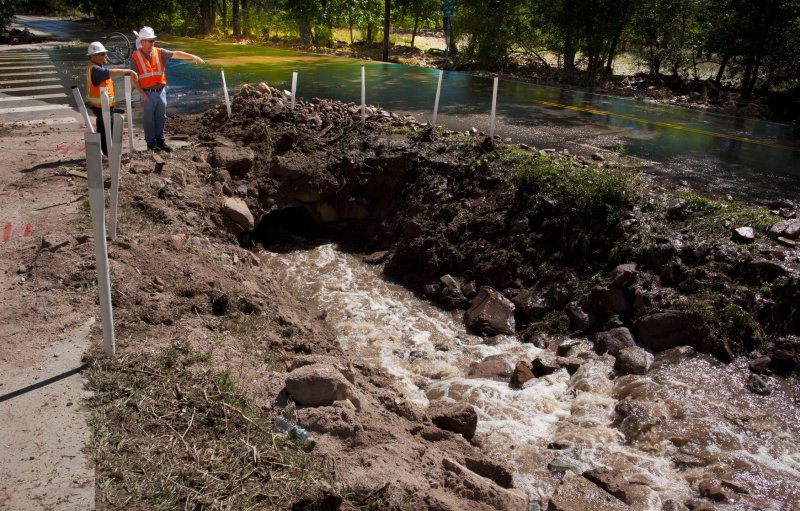Utility workers examine a damaged Linden Street during the aftermath of flooding following epic rainstorms in Boulder, Colorado on September 17, 2013. The Colorado floods have claimed eight lives with flooding continuing in the NE part of the state. UPI/Gary C. Caskey |
License Photo
DENVER, Sept. 18 (UPI) -- A Colorado energy regulator said it was rare for hydraulic fracturing fluids to be stored in open pits in parts of the state affected by heavy flooding.
The Weather Channel reported Wednesday the "massive amount of rain" that fell over much of northern Colorado was collecting in the South Platte River, which is "well above flood stage."
Colorado regulators worked this week to address concerns sparked by photographs circulating on social media sites of pollution associated with hydraulic fracturing in the state.
Gary Wockner, state program director for the advocacy group Clean Water Action, said there were concerns about water pollution from the energy industry.
"Our biggest fear is that oil and gas hydrocarbons and hydrofracking chemicals will get into the water supply, and that the flooding will spread the pollution over a large swath of the landscape," he was quoted by CBS News as saying Tuesday.
The Colorado Oil and Gas Conservation Commission said more than 1,500 oil and natural gas wells were closed because of the flooding. The regulator said Tuesday it was "aggressively" working to examine the impact of the flood waters on oil and natural gas facilities in the state.
It said it had inspectors surveying parts of the South Platte River for any contamination but said most hydraulic fracturing fluids were stored in storage tanks or taken off site in northeastern Colorado.
"The pits that are used during hydraulic fracturing store fresh water," the COGCC said.















